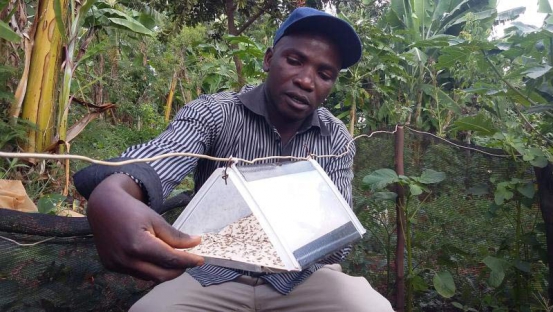×
The Standard e-Paper
Join Thousands Daily

In the harvest seasons before January 2017, farmer Douglas Gitonga, from Central Imenti in Meru County, rued losses from his mixed tomato farm.
Now Gitonga is pretty confident that his production will increase owing to a triangular gadget that gives his crops protection against a formidable pest that has cost him massive crop losses.